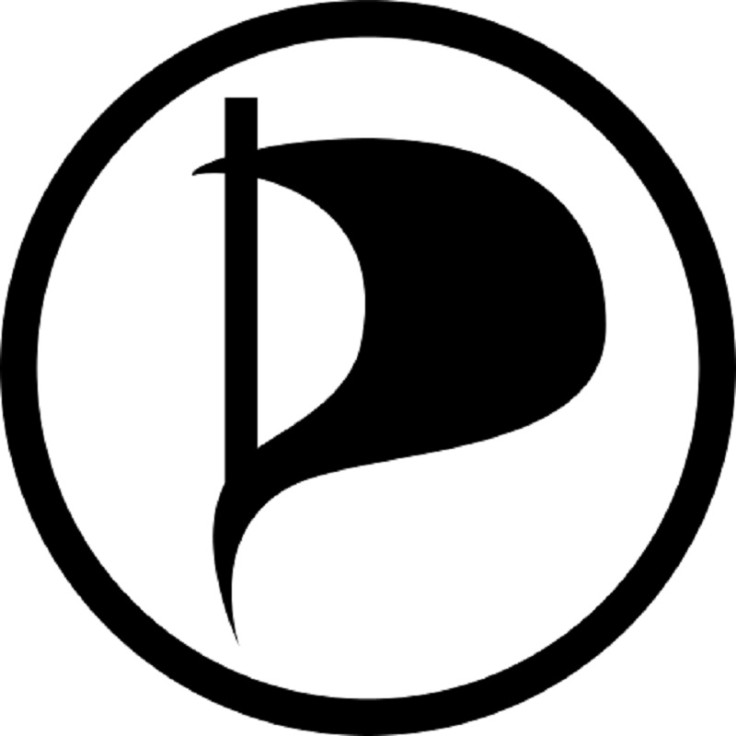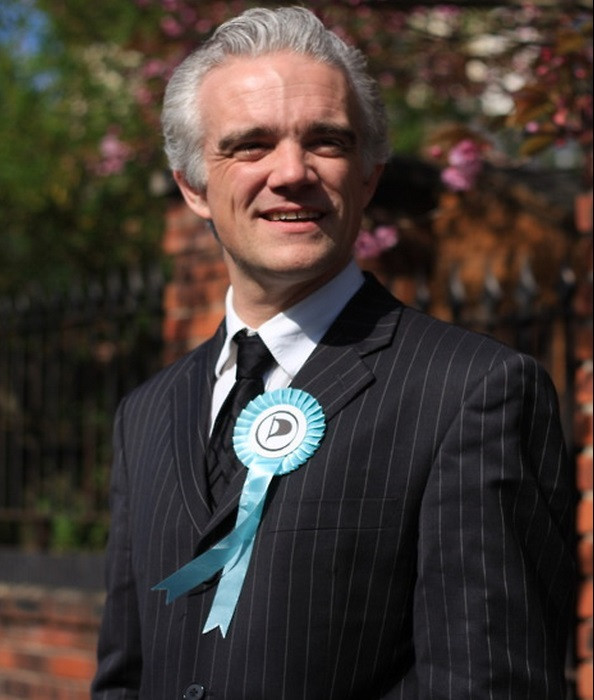General election 2015: Three things we learnt about the UK Pirate Party

No, the UK Pirate Party isn't about swashbuckling adventures and singing "yo, ho, ho, and a bottle of rum".
The group is primarily concerned with digital rights, supporting privacy and reducing surveillance.
The organisation's parent group was formed in Sweden in 2006 and its British equivalent was put on the Electoral Register in July 2009.
Since then the tech-savvy politicians have contested the 2010 General Election as well as standing in the 2011 Oldham East and Saddleworth and 2012 Manchester Central by-elections.
Most recently the group raised £5,000 ($7,554, €6,523) through crowd-funding and stood at last year's European Union (EU) parliamentary election.
The party, which had three candidates in the North West England constituency, only garnered 8,957 votes or 0.5% of the vote.
But its German sister party saw its first MEP in the shape of Julia Reda, who has been chosen to be the rapporteur of the Legal Affairs Committee on copyright reform in the EU parliament.
With the general election looming, the UK party's leader Loz Kaye is preparing for a new battle.
A 74% membership surge
Politics is an expensive business. It's not uncommon for a prospective parliamentary candidates (PPC) to blow their personal savings or even re-mortgage their houses in the pursuit of a seat.
So how does a small party like the Pirate Party fund its activism and who helps out?
Kaye told IBTimes UK that the organisation is financed through small donations, membership fees and crowd-funding projects.
"We don't have rich donors or big unions to back us but we think that's all to the good because we are really accountable to the membership because we are not pushed in a particularly direction," Kaye said.
There's promising news on the membership fee side of the finances as the party has seen a 74% surge in membership between 2010 and 2015 as the group jumped from 457 to 799 supporters.
Kaye, a former Labour activist who left the party in 1993, said the party is having some success winning over members of mainstream parties as a few Liberal Democrat and Green Party supporters have jumped ship to join the Pirate Party.
He explained that music used to pay his bills but he has since concentrated his efforts on the party leadership.
"I decided to stop that while I take on this particularly role. It's important that we start to stop this divide between people and politician," he said. "I have agonised over the idea that I could be a politician but we need to reclaim the word."
Points-based immigration system

The Pirate Party can also boast more policies alongside its additional members. The organisation now has a full manifesto, created by outsourcing the project to "thousands" of people.
The document takes the party beyond its comfort zone of digital rights and criticising EU copyright law.
"We cover the environment, social policy, defence, EU – all from a distinctive point of view," Kaye said.
"Obviously one of the big issues that's coming up for the general election is the NHS. We are very clear that the NHS needs to be free at the point of use."
The Pirate Party leader argued that his organisation has a unique stance on the ongoing debate – drug patents.
"Time and again it's in the news – the price of drugs and vaccines. There's no point in just narrowly complaining about the privatisation of the NHS, we need to act on the issue that through the patent system drug companies are able to gouge huge amounts of money out of public system. Nobody else is bringing this into the NHS debate and this is crucial," he said.
Another hot topic that they are taking on is immigration. Kaye maintained that freedom of movement in the EU "needs to be protected" and rails against the "very ugly" rhetoric surrounding the immigration debate.
"Freedom of movement cuts both ways: Obviously there are British citizens outside of the UK so freedom of movement is our freedom too and that needs to be protected," said.
But the leader explained that the Pirate Party could adopt a points-based approach to immigration.
"More broadly we are looking at taking people's concerns on board. Looking at a points-based system. We are opposing Theresa May's plan to chuck out students immediately upon finishing their degrees. That's ridiculous idea, particularly for our economy."
EU referendum
The organisation also, like David Cameron, wants an in/out referendum on the UK's membership of the EU.
Kaye said the issue has proven to be a huge thorn for the debate in Britain since John Major and his party wants to tackle it "head on".
"We want to see the UK in the EU but that doesn't mean we are uncritical cheerleaders for the EU. We think that fundamentally that the whole structure is wrong," Kaye explained.
"The power needs to flow from the elected representatives in the EU parliament. The power is flowing from the EU Commission and that's fundamentally wrong.
"The trouble is that we need to renegotiate this with along with other EU partners. Cameron will fail if he just goes along and blusters at European summits.
"He's the Billy No Mates European leader and that's because he's constantly trying to play tough."
Who knows if the full manifesto will catch more voters or if it will push existing members away?
Either way, the Pirate Party will be one of the more interesting parties to keep an eye on as we head towards May. We are, after all, very much in the age of technology and the internet.
© Copyright IBTimes 2025. All rights reserved.






















